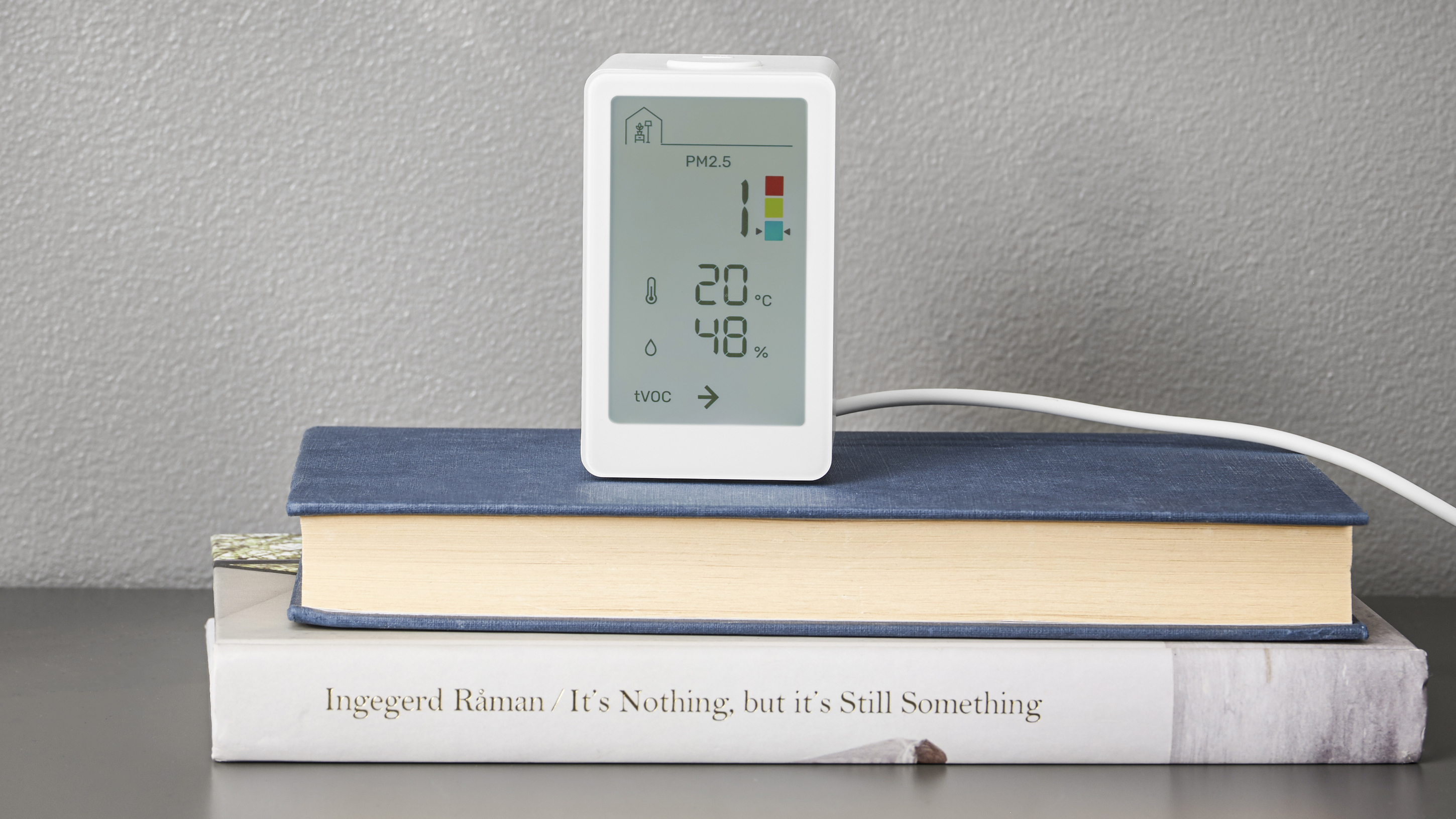IKEA’s new smart sensor could be the key to making your home healthier
IKEA has beefed up its smart home range with a new sensor that can detect indoor air pollutants to help make your home significantly healthier.
The new Vindstryka air quality sensor measures a type of ‘particulate matter’ known as PM2.5, which is invisible to the naked eye and can pass through your lungs and into your bloodstream. In the home, these inhalable particles are usually produced by cooking, candles, some types of heating, and tobacco smoke.
Alongside PM2.5, the Vindstryka also measures humidity, temperature, and TVOC (total volatile organic compound), which measures the pollution levels of various gases. On the downside, IKEA’s sensor doesn’t measure CO2 or carbon monoxide, which means it isn’t quite a comprehensive standalone solution.
Still, the Vindstryka does have a handy screen to show you live readings of everything it’s tracking, and its main benefit is that it connects to IKEA’s new Matter-ready Dirigera smart home hub. This means it can be used to automatically trigger other smart home devices, like fans or air purifiers, based on air quality readings, making it a possible contender for our guide to the best smart home devices.
Naturally, IKEA makes its own versions of those accessories, including the Starkvind air purifier. Connect this to the Vindstryka air quality monitor, and its fan speeds will adjust automatically based on the amount of PM2.5 in the air.
But the promise of Matter, which is a new smart home software standard, is that products made by different manufacturers will all be interoperable. So connecting the Vindstryka to a Matter-ready hub like the Dirigera means it’ll theoretically be capable of talking to all kinds of other smart home products when they’re available.
The Vindstryka will be available to buy from April, though IKEA hasn’t yet shared official pricing. Some rumors (opens in new tab) suggest it’ll cost in the region of €39 (around $42 / £35 / AU$61), but we’ll update this story with official pricing when we get it from the home furniture giant.
Analysis: Air quality monitors are a smart idea

Do you really need a smart air quality sensor at home, or are they overkill? An actual air purifier like the Dyson Purifier Cool Autoreact will clearly do more on a practical level to capture particles and they can offer some insights from their sensors. But the benefit of a monitor like the Vindstryka is that it can slot into a wider smart home setup.
There is also evidence that our indoor air does often contain some hidden dangers, like the PM2.5 particles that IKEA’s monitor detects. For example, the Environmental Protection Agency (EPA) (opens in new tab) discovered that levels of some troublesome gases are on average between two to five times higher in our homes than outdoors. Separate studies from Dyson (opens in new tab) found that this was exacerbated during global pandemic lockdowns.
With a study from the World Health Organization (opens in new tab) also finding that 3.2 million deaths per year are caused by household air pollution, there is clearly some benefit in tracking and tackling the pollutants in your home – particularly if you spend a long time inside while working from home.
IKEA admits that its Vindstryka monitor isn’t a panacea, stating that “we know that there is no single solution to solve indoor air pollution” and that it partly exists to increase awareness. Some rival models, like the screen-less Netatmo Smart Indoor Air Quality Monitor and Airthings View Plus, do also go further by detecting things like CO2 levels.
But it’s good to see affordable new air quality monitors arrive that promise to play nicely with Matter-compatible accessories, so we can finally realize the dream of an automated smart home system that does more than gimmicky tricks.

